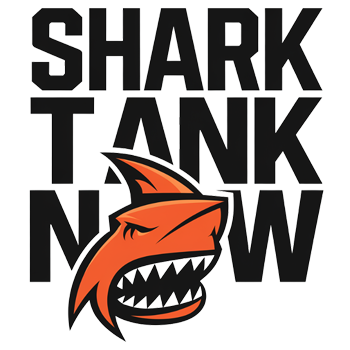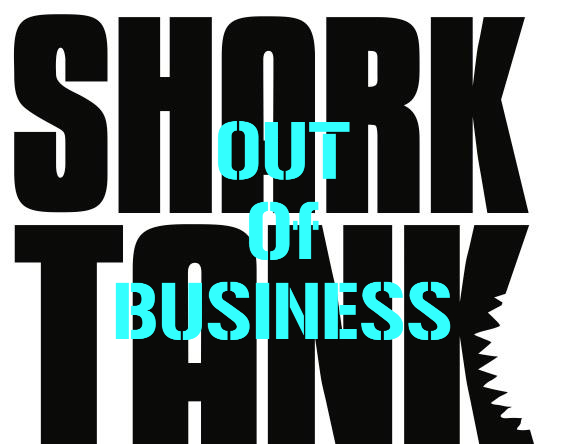Every once in a while, a product comes along on Shark Tank that makes you wonder, “Why didn’t I think of that?” The BagBowl was one of those products for me. As someone who’s always struggled with creating a sturdy bowl out of a plastic bag during picnics, tailgates, or family outings, the BagBowl felt like a genius solution. But as we’ve learned from so many Shark Tank success stories—and failures—a great idea is just the beginning. Let’s dive deep into the story of the BagBowl, from its memorable debut on Shark Tank to its eventual downfall.
The Problem and the Solution: Enter BagBowl
The BagBowl was the brainchild of brothers Brian and Kevin Fleming, two entrepreneurs with a knack for finding simple solutions to everyday problems. The concept was straightforward: a reusable, foldable sleeve that could transform any plastic bag into a sturdy, functional bowl. It promised convenience for busy families, outdoor enthusiasts, and anyone who’s ever struggled to keep a plastic bag open while serving food or snacks.
When the Flemings walked onto the Shark Tank stage in Season 4, Episode 4 (October 2012), they brought with them not just a product but a vision for making food storage and serving easier and more accessible. Little did they know, their journey would take them through some steep highs and devastating lows.
The Shark Tank Pitch
The Ask
The Flemings came into the tank seeking $40,000 in exchange for a 33% equity stake in their company. It was a modest ask, signaling that they were looking more for mentorship and expertise than just capital.
The Presentation
Their pitch was both entertaining and practical. Brian and Kevin demonstrated how the BagBowl worked, showing how it could be used for everything from chips at a picnic to leftovers in the fridge. They highlighted its reusability, portability, and the fact that it came in various sizes to accommodate different types of plastic bags.
The Memorable Moments
If you’ve watched the episode, you probably remember Brian’s cheeky moment when he addressed Mark Cuban as “Cubes.” It was a bold, albeit risky, move that immediately put Cuban off. He withdrew from negotiations almost instantly, citing the nickname as unprofessional. Despite this hiccup, the brothers managed to keep the other Sharks engaged with their humor, confidence, and clear passion for their product.
The Investment Details
After some deliberation, Lori Greiner saw potential in the BagBowl. Known as the “Queen of QVC,” Lori recognized that the product would resonate with her QVC audience. She offered the exact terms the Flemings had requested: $40,000 for 33% equity. The brothers accepted her offer, and the deal was sealed.
The Data-Rich Breakdown
Here’s a detailed summary of the BagBowl’s journey:
| Category | Details |
|---|---|
| Product Name | BagBowl |
| Founders | Brian Fleming and Kevin Fleming |
| Season & Episode | Season 4, Episode 4 |
| Ask (Investment & Equity) | $40,000 for 33% equity |
| Final Deal | $40,000 for 33% equity |
| Shark(s) Involved | Lori Greiner |
| Memorable Episode Moments | Brian addressing Mark Cuban as “Cubes,” leading to Cuban’s withdrawal from negotiations |
| Current Net Worth | $0 (company ceased operations in 2018) |
| Current Business Status | Dissolved |
| Revenue Since Shark Tank | Faced production issues; experienced slow sales post-launch |
| Social Media Presence | Social media accounts abandoned; last activity in April 2016 |
| Key Achievements | Secured a deal with Lori Greiner; featured on QVC; introduced an additional product, the Daddio Spill Stopper Training Cup |
The Post-Shark Tank Journey
Initial Challenges
You would think that landing a deal with Lori Greiner would set the BagBowl on a fast track to success. But the reality was far more complicated. Shortly after their Shark Tank episode aired, the company faced significant production delays. For over two months, the BagBowl was unavailable for purchase—a critical period during which consumer interest was at its peak due to the show’s exposure.
QVC and Limited Success
Once production issues were resolved, Lori leveraged her QVC platform to promote the BagBowl. The product saw a brief spike in sales, but it quickly became apparent that it wasn’t resonating with a broad enough audience. The novelty of the idea didn’t translate into sustained demand.
Expansion and New Products
In an attempt to diversify their offerings, the Fleming brothers introduced a second product: the Daddio Spill Stopper Training Cup. While innovative, this product also struggled to gain traction. The brothers’ inability to scale their business effectively or create a robust marketing strategy hindered their overall growth.
The Current Status of BagBowl
By 2018, the BagBowl company had ceased operations. Its official website went offline, products were pulled from Amazon, and its social media accounts were abandoned. The last activity on their accounts was in April 2016, signaling a steady decline that ended in the business shutting down.
Today, the BagBowl is no longer available for purchase. The company’s net worth stands at $0, and the Flemings have seemingly moved on to other ventures.
Lessons from the BagBowl Story
The BagBowl’s journey is a cautionary tale for aspiring entrepreneurs. It’s a reminder that even with a great idea, a deal from a Shark, and access to powerful platforms like QVC, success is never guaranteed. Here are some key takeaways:
- Production Readiness is Key: The Flemings’ inability to meet demand immediately after their Shark Tank appearance cost them valuable momentum.
- Market Fit Matters: While the BagBowl was clever, its niche appeal limited its market potential. Aspiring entrepreneurs should focus on products with broader applications and consumer appeal.
- Adaptability is Crucial: The BagBowl team failed to pivot effectively when sales lagged, a move that could have prolonged their business’s lifespan.
My Final Thoughts
Reflecting on the BagBowl’s story, I can’t help but admire the Flemings for their creativity and courage. They took a simple concept and turned it into a product that caught the attention of millions, including one of the most successful Sharks. But their journey also underscores the complexities of entrepreneurship. Success on Shark Tank is just the beginning, and what happens next depends on a mix of preparation, execution, and sometimes a bit of luck.
The BagBowl may no longer be around, but its story remains a valuable lesson for anyone dreaming of starting their own business. As for me? I’ll probably stick to using Tupperware—but I’ll always wonder what could have been if the BagBowl had managed to make it work.

